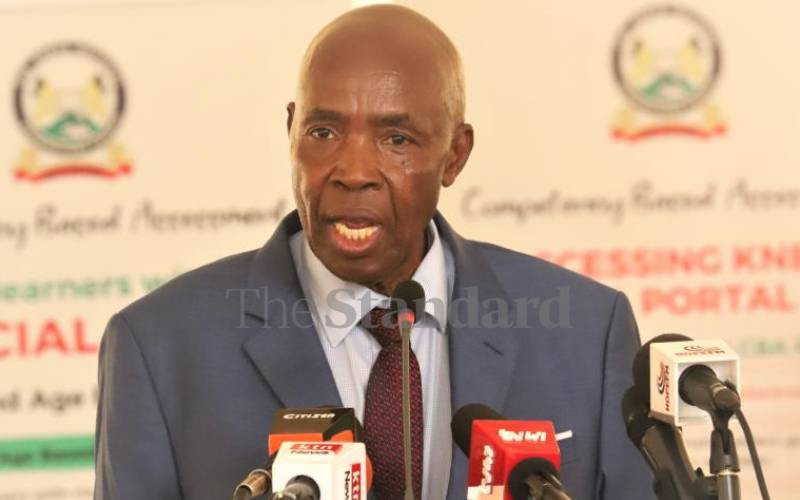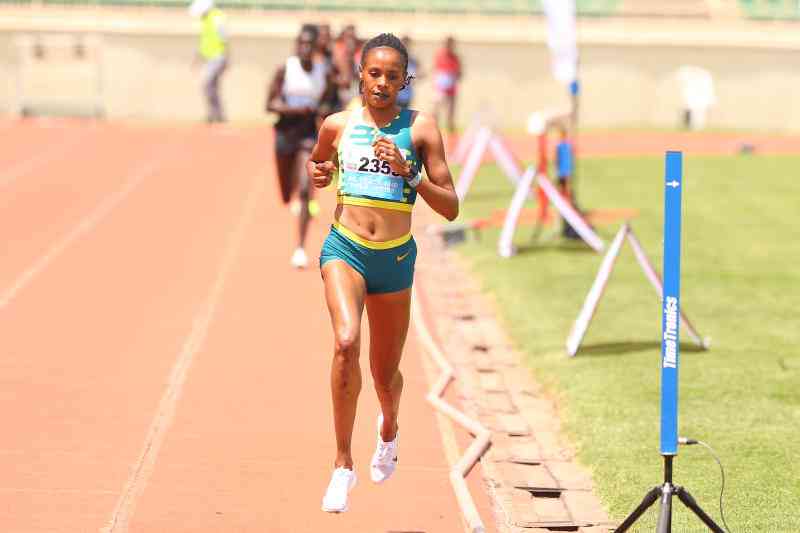It is eleven months now and investors on Nairobi Securities Exchange (NSE) can no longer keep their eyes fixed on the trading bourse with hope. The green shoots have remained a rare fete.
From the main investment market to the Growth Enterprise Market Segment (GEMS), the red shoots have dominated the bourse. For the over 1.2 million local individual investors and 42,284 local corporate investors, 22 days may be too short to turn around their fortunes this year.
Memories of a record 19 companies warning their investors that they expect their full year earnings to dip by at least a quarter have been rekindled. But this time round, from unlikely stock- Nairobi Securities Exchange Limited.
For the first time since self-listing in September 2014, NSE, which derives over half of its income from trading activities on the market, has become the first listed company to issue a profit warning for full-year 2016. This condemned its share to Sh14.05, being down 8.8 per cent week-on-week and fourth highest loser. The counter has shed 24.3 per cent of its value this year.
With its profits on a free-fall since the Sh320 million profit on its maiden year, the warning mirrors three consecutive years of investors on the region’s largest bourse burning their fingers.
According to Standard Investment Bank (SIB) head of research and investment analysis Francis Mwangi, NSE Limited is in this position because of the low market turnover compared to last year, which means a squeeze on its commissions from trading. The commission that NSE earns is usually a percentage of the value of transactions and therefore, its income is tied to the value of stocks moved on the bourse.
But addressing the press last week, NSE Chief Executive Officer Geoffrey Odundo cited some positives to pick this year. “We are seeing improved share trading units compared to last year despite the fall in the value of transactions,” he said adding that the market has already recovered from last year’s bear run triggered by the introduction of capital gains tax. By close of December last year, 48 of the 64 listed stocks were in red wiping out Sh250 billion unrealised wealth. At least a dozen of companies saw their stock price more than halve.
Yet, investors may be in for another upset in a year that saw the market suffer shocks of Britain voting to exit European Union and the introduction of a cap on the price of loans. A tracking of the market done by SIB analysts shows that so far, just six stocks are trading at a price higher than they had on the first day of trading in January.
KenolKobil leads the pack with 63.5 per cent year-to-date gain. At the current price of Sh15.7, investors of the stock have gained Sh93 million since January when it was trading at Sh9.6. Kenya Airways share has defied turbulent times to make a 32.7 per cent gain since January. At the current price of Sh6.4, its shareholders are in a better position to cash in if they sell the stock now.
Safaricom, which commands volumes has also had a good run gaining by 26.6 per cent year-to date. Other gainers are Longhorn (up by 16.2 per cent), Standard Chartered Bank (up 8.3 per cent) and Unga Group with 5.2 per cent gain. But investors in cash-strapped Uchumi Supermarkets will be in for a reverse of last year. The counter is on a free fall, having shed 69.9 per cent of its price and now trades at Sh3.4. If its investors sell the stock now, they will be more than two times bad off than they were in January.
Other disappointing stocks have been Limuru Tea (down by 51.2 per cent), Nation Media Group (down 50.3 per cent) and East African Portland Cement that has shed 57.2 per cent of its stock price since January. Bank stocks have seen their market capitalisation shrink to Sh513.1 billion, down by from Sh658.8 billion in January.
The eleven listed bank stocks, with activities accounting for about two thirds of the entire market turnover, wiped out Sh84.7 billion of investors’ money in just two days as six stocks succumbed to their 52 week lows. This was on news that interest rates had been capped.
The NSE boss reckons that rebounding has been an anthill task. “With the cap, bank stocks went down by 30 per cent. We have seen a recovery of only 5 per cent. However, in September, we saw volumes traded grow.” By the close of the first nine months of the year, investors on the entire stock market had booked about Sh80 billion paper losses. The bourse touched a five year low as most foreign investors retreated.
Within this period, just six counters alone had managed to record any gain in prices while a massive 58 counters sunk into red. Just a few remained attractive as a majority were given more than 10 percentage negative valuations.
Mr Odundo said that most stock markets have been bearish this year. According to him, Donald Trump’s win in the US elections, added to the uncertainty sending shock-waves to the global markets. “Trump is focused on trade protectionism, reducing aid and rolling out tax cuts. This and Brexit have led to increased uncertainty in global capital markets,” he said.
For Kenya, where about 70 per cent of the activities on NSE are by foreign investors, the exposure to the global market shocks is also high. In the third quarter to June, foreign participation on the bourse reached an all time high of 87.18 per cent. According to Odundo, foreign participation is welcome and that NSE will focus on ways of exciting local investors to participate more in trading to re-balance foreign investor dominance. “Retail investors are interested in seeing price appreciations. When markets go through down-turn, people tend to shy off yet that is the time they should be buying,” he said.
However, Einstein Kihanda, CEO at ICEA-Lion Asset Management says that whereas the performance and projections on the economy have been fairly optimistic, this has been largely driven by infrastructure development. “If you extract that, you will have a lower economic growth rate. I don’t expect a similar level of profit warnings from companies like it was last year but the economy has not really been on recovery as such,” Kihanda told Business Beat.
A part from NSE, Family Bank, which saw its nine year month earnings dip by 46 per cent has already alerted its investors that it expects full year profit to be below that of last year by at least 25 per cent. Going by half year performances, possibility of other firms doing so exists.
According to SIB’s Mwangi, most stocks that the firm analyses such as Safaricom, Equity bank, KCB, BAT and East African Breweries are trading below their earnings potential. “Majority of the stocks we cover have a buy recommendation. Sometimes the market undervalues the earning potential of some businesses. We see a potential for their prices to go up,” he said.
In the next 22 days of trading remaining before the market closes until next year, Kihanda, reckons that there may be no redemption left on the trading floor this year. “We are technically in a holiday already. We may have seen the best or worst that we probably could have seen in the market for 2016,” said Kihanda adding that the market may only favour those with long term view of more than three years.
 The Standard Group Plc is a multi-media organization with investments in media
platforms spanning newspaper print operations, television, radio broadcasting,
digital and online services. The Standard Group is recognized as a leading
multi-media house in Kenya with a key influence in matters of national and
international interest.
The Standard Group Plc is a multi-media organization with investments in media
platforms spanning newspaper print operations, television, radio broadcasting,
digital and online services. The Standard Group is recognized as a leading
multi-media house in Kenya with a key influence in matters of national and
international interest.
 The Standard Group Plc is a multi-media organization with investments in media
platforms spanning newspaper print operations, television, radio broadcasting,
digital and online services. The Standard Group is recognized as a leading
multi-media house in Kenya with a key influence in matters of national and
international interest.
The Standard Group Plc is a multi-media organization with investments in media
platforms spanning newspaper print operations, television, radio broadcasting,
digital and online services. The Standard Group is recognized as a leading
multi-media house in Kenya with a key influence in matters of national and
international interest.









